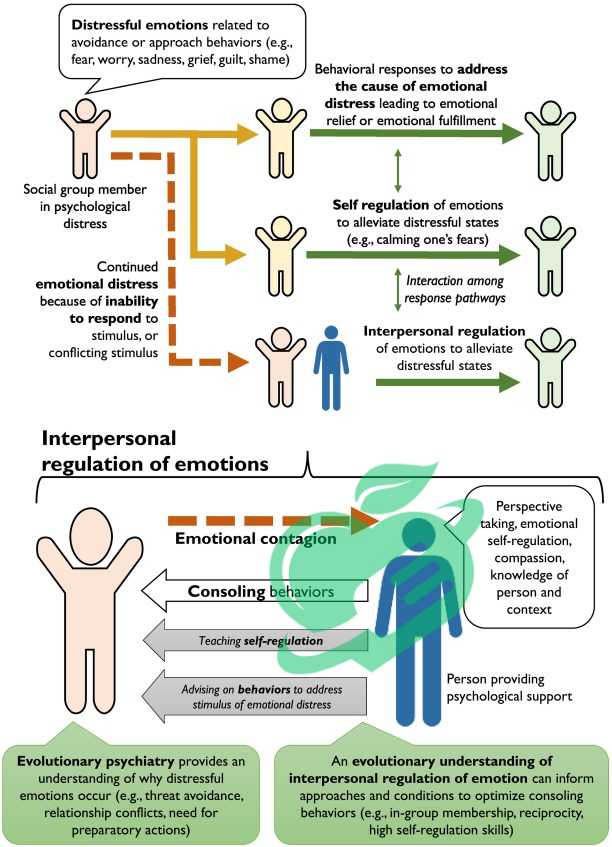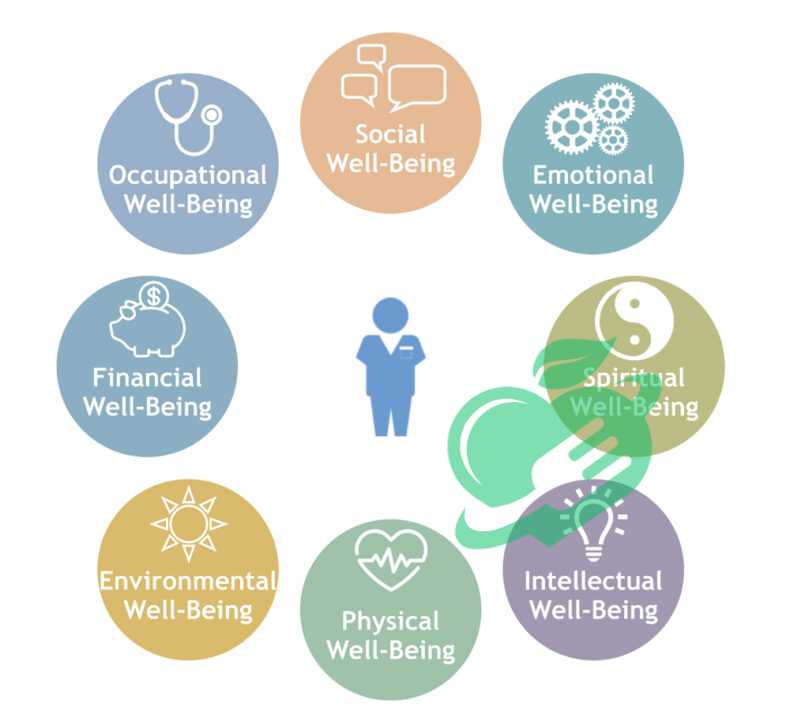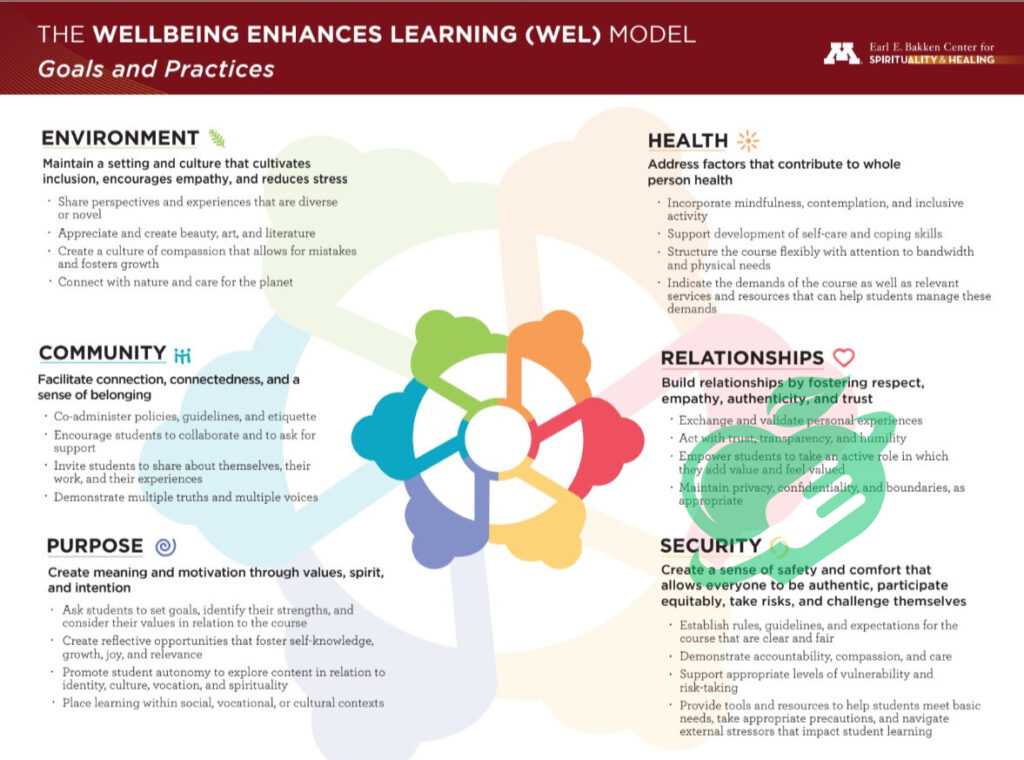Promoting Mental Well-being in the Nursing Field

Impact of Mental Health on Nurses
Mental health is crucial in the nursing profession. Nurses are often the backbone of the healthcare system, yet they frequently experience high levels of stress and emotional strain. The impact of mental health on nurses can manifest in several concerning ways:
- Job Performance: When a nurse’s mental health is compromised, it can lead to decreased performance, error-prone work, and overall job dissatisfaction. For instance, a nurse dealing with anxiety may struggle to communicate effectively with patients or colleagues, resulting in misunderstandings or missed care opportunities.
- Patient Care: Nurses who are mentally unwell may not provide the compassionate and attentive care that patients deserve. A lack of empathy due to emotional exhaustion can affect the therapeutic relationship between nurses and patients.
- Physical Health: Chronic stress can lead to various physical health issues, such as hypertension, cardiovascular problems, and even burnout. For example, a nurse who consistently works long hours with inadequate rest may find her health deteriorating over time.
Stigma Surrounding Mental Health in Nursing-mental health in nursing
Despite the known importance of mental wellness, stigma still pervades the nursing community. Many nurses may feel uncomfortable discussing their mental health due to fears of judgment or professional repercussions. This stigma can lead to:
- Underreporting of Mental Health Issues: Nurses may choose to suffer in silence rather than seek help, exacerbating their conditions.
- Isolation: The fear of being seen as weak can prevent nurses from reaching out to colleagues for support, leading to feelings of loneliness and despair.
To combat this stigma, it’s essential to foster an environment of open communication where mental health struggles are viewed with empathy rather than judgment. By sharing stories and normalizing these conversations, the nursing community can create a supportive atmosphere that promotes overall wellness.
Read also: From Theory to Reality: Exploring the Feasibility of Blood Tests for Anxiety Disorders

Factors Influencing Mental Wellness
Work Environment Challenges
The work environment plays a significant role in shaping mental wellness among nurses. Various challenges within the workplace can create a high-stress atmosphere that impacts their overall health. Some of these challenges include:
- Staff Shortages: A common issue in many healthcare settings, staff shortages can lead to increased workload and longer shifts. For instance, a nurse covering for multiple colleagues may feel overwhelmed, leading to fatigue and burnout over time.
- High-Pressure Situations: Nurses often face emergencies that require split-second decisions. This consistent exposure to critical situations can lead to chronic stress and anxiety.
- Inadequate Support Systems: If the workplace lacks proper mental health support, nurses may struggle to cope with their emotional burdens. Feelings of being undervalued or unsupported can contribute to a diminishing sense of purpose.
Recognizing these challenges is crucial to fostering an environment where nurses can thrive mentally.
Coping Mechanisms and Stress Management-mental health in nursing
To combat the pressures of their work environment, nurses must cultivate effective coping mechanisms and stress management strategies. Here are some approaches that can help:
- Mindfulness Practices: Simple techniques such as meditation, deep breathing exercises, or yoga can provide nurses with a mental break, even during a busy shift.
- Regular Breaks: Taking short, regular breaks can recharge nurses mentally and physically. A quick walk outside or even enjoying a few minutes of silence can make a world of difference.
- Utilizing Support Networks: Sharing experiences with trusted colleagues can alleviate feelings of isolation. Whether through informal chats or structured support groups, knowing others face similar challenges can foster solidarity.
Implementing these coping strategies not only enhances individual well-being but also contributes to a more positive and resilient nursing community.
Read also: Unveiling the Mysteries of Yoga: A Comprehensive Beginner’s Handbook

Promoting Mental Wellness Among Nurses
Importance of Self-Care
Self-care is often seen as a luxury rather than a necessity, especially in the demanding world of nursing. However, prioritizing self-care is fundamental for nurses to maintain their mental wellness. Consider these points:
- Recharging Energy: Just like a cellphone needs to be charged, nurses need moments to rejuvenate. Regularly setting aside time for themselves can help them return to their duties with renewed focus and energy.
- Emotional Regulation: Engaging in self-care activities like reading, walking, or even painting allows nurses to express their emotions constructively. One nurse shared that spending just 15 minutes daily journaling helped her process difficult shifts and release pent-up feelings.
- Strengthening Resilience: When nurses adopt effective self-care practices, they build resilience. This enables them to handle the high-pressure environment they work in more adeptly.
Access to Support Services and Resources-mental health in nursing
In conjunction with self-care, having access to support services and resources is vital for promoting mental wellness among nurses. These resources can take many forms:
- Employee Assistance Programs (EAPs): Many healthcare organizations offer EAPs that provide confidential counseling and support for mental health issues. Nurses should be aware of these services and feel empowered to use them.
- Peer Support Groups: Creating or joining peer support groups can offer a safe space where nurses share experiences and coping strategies. A shared meal or coffee chat can foster connection and relieve stress.
- Workshops and Training: Regular workshops on stress management, mindfulness, or mental health education can equip nurses with practical tools they can implement daily.
Ensuring that nurses have access to these resources, along with encouraging self-care, creates a culture where mental wellness is actively promoted, benefiting both the nurses and their patients.

Building Resilience and Preventing Burnout
Strategies for Resilience
Building resilience is essential for nurses to navigate the challenges they face daily. Having robust resilience strategies can significantly buffer against stressors. Here are some effective approaches:
- Cultivating a Growth Mindset: Embracing challenges as opportunities to learn can foster resilience. A nurse who recently failed a procedure can reflect on it as a learning experience rather than a setback, turning a negative into a constructive growth moment.
- Developing Strong Relationships: Having a reliable support system is crucial. Whether it’s bonding with colleagues over shared experiences or maintaining close ties with friends and family, these relationships provide essential emotional outlets.
- Setting Realistic Goals: Breaking down larger tasks into smaller, manageable goals can reduce feelings of overwhelm. A nurse could focus on completing one patient care task well instead of stressing over an entire shift’s worth of responsibilities.
Recognizing and Addressing Burnout Signs-mental health in nursing
Burnout is a pervasive issue in nursing, often going unnoticed until it has significantly impacted a nurse’s well-being. Recognizing the signs early is crucial:
- Physical Symptoms: Nurses should be aware of signs such as chronic fatigue, insomnia, or frequent headaches. For example, constant exhaustion may signal that it’s time to reassess work-life balance.
- Emotional Indicators: Feelings of hopelessness, irritability, or detachment can indicate burnout. A nurse who finds herself resonating with frustration more than joy should take that as a cue to reflect on her situation.
- Decreased Productivity: A sudden decline in performance, such as forgetting essential tasks or a lack of motivation, can be red flags.
Addressing these signs involves creating an immediate action plan, which may include seeking help from a supervisor, using support resources, or even taking a well-deserved break. By prioritizing resilience-building strategies and promptly addressing the symptoms of burnout, nurses can maintain better overall mental health and job satisfaction, resulting in a more fulfilling career.
Read also: What are the benefits of good stress – pros and cons

Fostering a Supportive Organizational Culture
Leadership’s Role in Mental Wellness
Creating a supportive organizational culture starts at the top. Leadership plays a crucial role in promoting mental wellness within the nursing community. When leaders prioritize mental health, it sets the tone for the entire organization. Some impactful strategies include:
- Leading by Example: When leaders openly discuss their mental health challenges and self-care strategies, it creates a culture of acceptance. For instance, a medical director who shares his experience with stress management during team meetings encourages nurses to feel comfortable discussing their challenges.
- Providing Training and Resources: Effective leaders invest in training programs focusing on mental wellness and resilience. Workshops on topics like stress reduction or effective communication can empower nurses with essential skills.
- Encouraging Open Dialogue: Leaders should encourage open discussions about mental health, allowing staff to voice concerns without fear of judgment. Regular check-in meetings or anonymous suggestion boxes could facilitate this.
eer Support and Communication Channels-mental health in nursing
In addition to leadership initiatives, fostering peer support and effective communication is vital for enhancing mental wellness in nursing. Key strategies include:
- Establishing Peer Support Networks: Creating groups where nurses can share experiences, resources, and coping strategies fosters camaraderie. For example, a hospital might offer monthly coffee sessions where nurses can gather informally to discuss challenges and solutions.
- Creating Communication Channels: Having structured communication platforms, such as dedicated online forums or chat groups, allows nurses to share their thoughts continually. This ongoing dialogue helps normalize discussions around mental health.
- Encouraging Team Building: Activities focused on building trust and relationships among team members can enhance peer support. Team-building outings, whether virtual or in-person, can strengthen bonds and allow nurses to connect outside of work stressors.
By focusing on these aspects, organizations can cultivate a nurturing environment where nurses feel supported and empowered to address their mental wellness proactively. This promotes not only individual well-being but also enhances overall team cohesion and effectiveness.
Read also: Understanding the Importance of Mental Health First Aid

Empowering Nurses to Seek Help
Overcoming Barriers to Seeking Help-mental health in nursing
Despite the recognition of mental wellness as an essential aspect of nursing, many nurses still face barriers that prevent them from seeking help. Addressing these barriers is crucial for fostering a supportive and open culture. Here are common obstacles and how they can be overcome:
- Fear of Judgment: Many nurses fear that seeking help will lead to being viewed as less competent or dependable. This stigma can be incredibly isolating, but organizations can help reduce this fear by normalizing mental health discussions. A nurse candidly sharing her experience with counseling in staff meetings can significantly shift perceptions and encourage others to take the leap.
- Lack of Time: Busy schedules can make it challenging for nurses to find time for mental health resources. Solutions include integrating mental health days into the schedule or allowing flexible hours for those seeking help.
- Limited Awareness of Resources: Some nurses may not know what resources are available to them. Providing a comprehensive list of mental health services within the organization can ensure that nurses are informed about their options.
Destigmatizing Mental Health Support-mental health in nursing
Destigmatizing mental health support is essential for creating an environment where nurses feel empowered to seek help. Here are effective strategies to foster this cultural shift:
- Education and Awareness Campaigns: Implementing workshops and seminars that address mental health can educate staff about mental health issues and the importance of seeking help. Sharing statistics or testimonials can beautifully illustrate the impact of mental wellness on both personal and professional levels.
- Promoting Success Stories: Highlighting stories of nurses who have successfully sought help can inspire others. A featured article or video sharing a nurse’s journey towards mental wellness can serve as a powerful reminder that seeking support is not a sign of weakness but of strength.
- Creating Safe Spaces for Discussion: Establishing forums or support groups specifically for discussing mental health can encourage openness. Nurses should feel they have a judgment-free zone where they can share, learn, and support each other.
By overcoming barriers and actively destigmatizing mental health support, the nursing community can empower its members to prioritize their well-being, leading to healthier and more successful careers.
Read also: Find Hope at a Leading Mental Health Hospital

Advocating for Mental Health Awareness in the Nursing Community
Education and Training Initiatives
Advocating for mental health awareness within the nursing community begins with robust education and training initiatives. Nurses need to be equipped not only with clinical skills but also with the knowledge to recognize and address mental health issues effectively. Here are a few impactful strategies:
- Incorporating Mental Health Education into Curriculum: Nursing programs should integrate mental health training into their core curricula. This could include studies on stress management techniques, recognition of burnout signs, and practical coping strategies. Imagine a nursing student learning about mindfulness techniques during crisis response simulations—this could significantly enhance their preparedness for real-life scenarios.
- Workshops and Continuing Education: Regular workshops that focus on mental wellness—such as stress management, emotional intelligence, and resilience-building—are crucial. For example, a local hospital could host annual “Wellness Weeks” featuring guest speakers, workshops, and interactive sessions dedicated to mental health.
- Simulation Training: Using role-playing scenarios can help nurses practice handling mental health situations in a supportive environment. This type of hands-on approach not only boosts confidence but also enhances empathy and understanding.
Destressing Activities and Wellness Programs-mental health in nursing
In addition to education, implementing destressing activities and wellness programs can significantly impact mental health in the nursing community. Here’s how organizations can facilitate this:
- Regular Wellness Activities: Implementing regular activities such as yoga classes, guided meditation sessions, or even “walk-and-talk” meetings can provide nurses with opportunities to unwind and recharge. A simple lunchtime yoga session could turn into a space for stress relief and connection.
- Encouraging Team-Building Events: Activities focused on team bonding—like hikes, game nights, or cooking classes—not only encourage relaxation but also strengthen relationships among staff. These informal gatherings allow nurses to communicate more openly about their experiences and challenges.
- Creation of Wellness Committees: Forming committees dedicated to fostering wellness initiatives can create accountability and ensure sustained focus on mental health. By involving nurses in the planning and decision-making process, the initiatives become more relevant and impactful.
By advocating for mental health awareness through education and wellness initiatives, the nursing community can cultivate a culture that prioritizes mental well-being, ultimately leading to healthier work environments and improved patient care.
Read also: Understanding the Importance of Mental Health First Aid

Recap of Strategies for Mental Wellness-mental health in nursing
As we’ve explored throughout this discussion, mental wellness is not just an individual concern; it’s a collective responsibility that calls for proactive strategies within the nursing community. Here’s a recap of essential strategies to promote mental wellness among nurses:
- Prioritize Self-Care: Encourage nurses to make time for activities that recharge their spirits, whether it’s jogging, meditation, or spending time with family.
- Cultivate an Open Culture: Leadership should foster an environment where discussions about mental health are normalized, appreciated, and encouraged.
- Support Systems and Resources: Ensure access to support services, such as EAPs and peer support groups, which are vital for emotional health.
- Implement Training and Education: Regularly schedule workshops that focus on mental health training, providing nurses with the tools needed to recognize and manage stress effectively.
These strategies, when embraced collectively, form a solid foundation to uplift the mental well-being of nurses and improve their overall job satisfaction.
Future Outlook on Mental Health in Nursing-mental health in nursing
Looking ahead, the future of mental health in nursing appears more hopeful than ever. There’s a growing recognition of the importance of mental wellness, especially after the challenges posed by the recent global health crises.
- Increased Awareness: Mental health awareness is on the rise, and many healthcare organizations are starting to prioritize these initiatives more extensively.
- Innovative Programs: The future may bring more tailored wellness programs that focus specifically on nurses, incorporating technology, virtual platforms, and community outreach.
- Research and Development: Ongoing research into mental health’s impact on nursing practice will continue to yield insights, further refining the strategies we use to enhance well-being.
With sustained efforts and an empowered nursing community, the focus on mental health can lead to a transformative era in healthcare, where nurses are supported, resilient, and better equipped to provide outstanding care. Together, we can create a culture that values and prioritizes mental wellness, ensuring that nurses thrive in their vital roles.
To stay up to date on the latest health and nutrition developments in the United States, visit our website Power Up Your Health, and gain more tips and solutions for a healthier life.




2 Comments